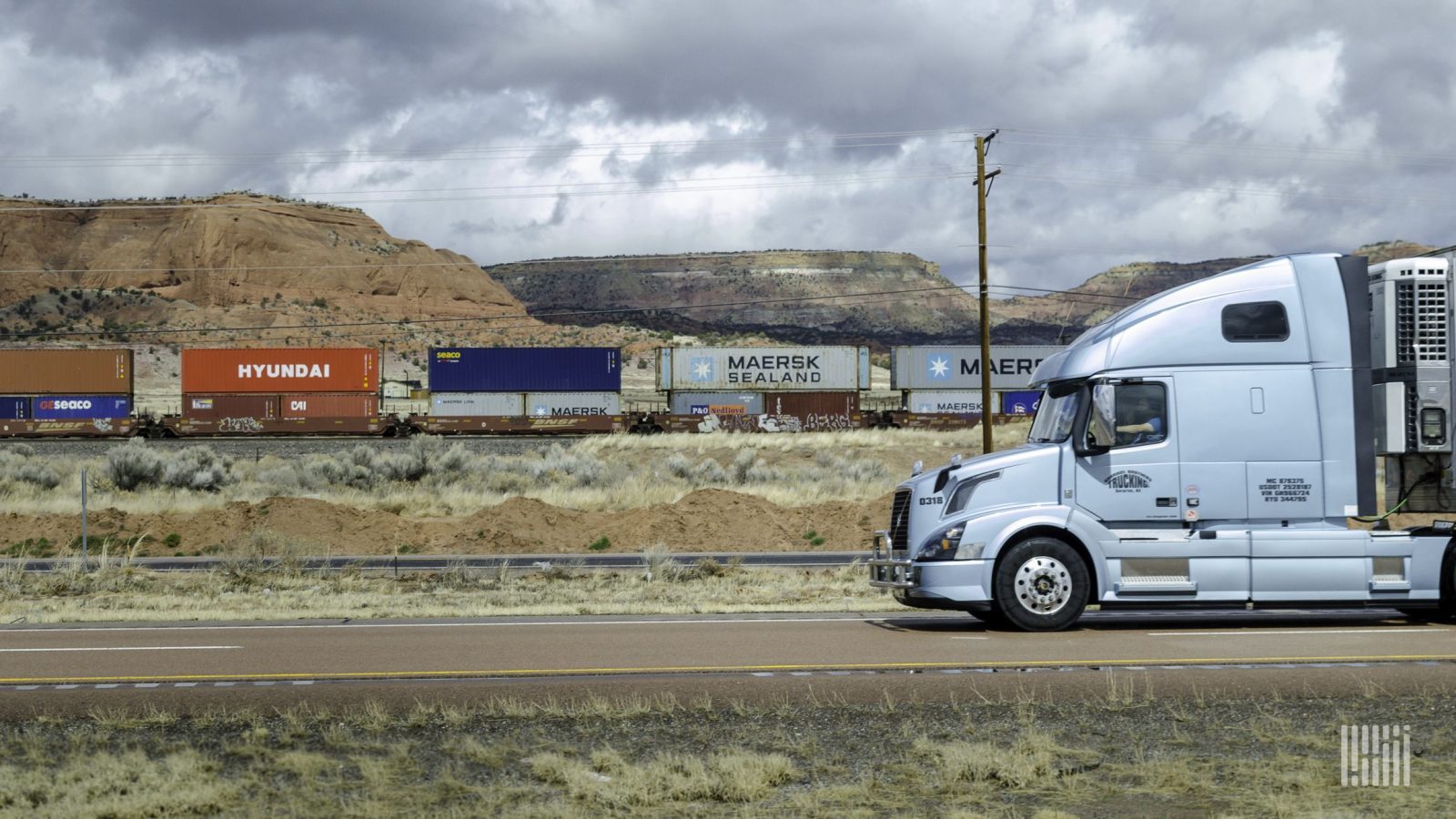Results of a unionization vote at a STG intermodal operation that had been owned by XPO Logistics have not been announced while the company seeks to overturn an earlier decision that declared a portion of its workers were employees, not independent contractors.
And since the drivers had no “proprietary interest” in their routes, they don’t “operate independent businesses with real and actual entrepreneurial opportunity for gain and loss,” Cowen said. That independence test is a key guideline in many cases of determining whether a worker is an employee or an independent contractor.
Having declared the workers employees rather than independent contractors, Cowen then ordered a unionization vote. Ballots in that election were to be counted July 15 but were impounded following the request by STG for Cowen’s order to be overturned, according to Julie Gutman Dickson, an attorney at Bush Gottlieb, which represents the workers and the Teamsters.
That request for a review was granted July 13 by a majority vote of three of the members of the full NLRB. The brief order said STG’s petition for a review “raises substantial issues.”
(Although XPO Logistics finds itself highlighted in the suit as “STG dba XPO,” a spokesman for XPO told that it has completely sold the business to STG and is not a party to any of the ongoing legal actions.)
“There is no dispute that owner-operators are entrepreneurial businesses and individuals over whom STG exercises little control,” the STG filing said. The original case brought by the Teamsters and the workers also included second-seat drivers, and STG said the owner-operators, “not STG, maintain either an employment or an independent contractor relationship with them.”
While the introduction of California’s AB5 is not raised in the case — it’s a state law and the issues with STG are federal — the reality is that the type of drayage operations conducted by STG are viewed as the primary target of the backers of AB5.
The “entrepreneurial opportunity” for owner-operators cited by STG in its filing has several prongs. Among them are that they have the ability to hire second-seat drivers; they make “the significant initial investment to acquire a tractor”; the owner-operators “do not have to wear uniforms or even physically appear at STG’s terminals to accept loads”; and the drivers “negotiate their compensation.”
But in a filing with the NLRB board as it considers whether to overturn the original Cowen decision, attorneys for the drivers and the Teamsters cited several work requirements at STG (and at XPO earlier) that they say point to a status that is an employee, not an independent contractor.
Among ones that were cited (and the filing uses the XPO name though the unit is now owned by STG):
Gutman Dickinson said the Cowen ruling that the workers were employees and not independent contractors was “a very strong decision that leaves no question that these drivers are employees who have been misclassified. I feel completely confident the board will uphold that.”
An email to attorneys representing STG had not been responded to by publication time.
In the background of this case is an initiative by the NLRB to review the legal guidance it uses on questions of independent contractor versus employees issues.
The current standard for determining the status of independent contractors used by the NLRB is a case the agency ruled on in 2019 known as Super Shuttle, which focused on the status of drivers for the Super Shuttle airport transportation company. The Super Shuttle decision is viewed as being favorable to the classification of workers — in the case of Super Shuttle, franchise operators — as independent contractors and was handed down by a board with a Republican majority.
Super Shuttle pushed aside the precedent in a 2014 case involving FedEx in which a Democratic majority NLRB handed down a ruling involving the delivery company. That decision was seen as more favorable to classifying workers as employees rather than independent contractors.
In an early January blog post, the law firm of Foley & Lardner joked that the NLRB’s decision to revisit Super Shuttle was “to the fatigue of many courts, litigants and corporations alike.”
But the Foley & Lardner blog post was clear in its forecast: “The board is likely to reinstate its prior Obama-era decision from FedEx,” it wrote. “A return to the FedEx approach will open the door possibly to more employee misclassification claims, unionization and greater protection for workers under the [National Labor Relations Act, which established the NLRB].”






